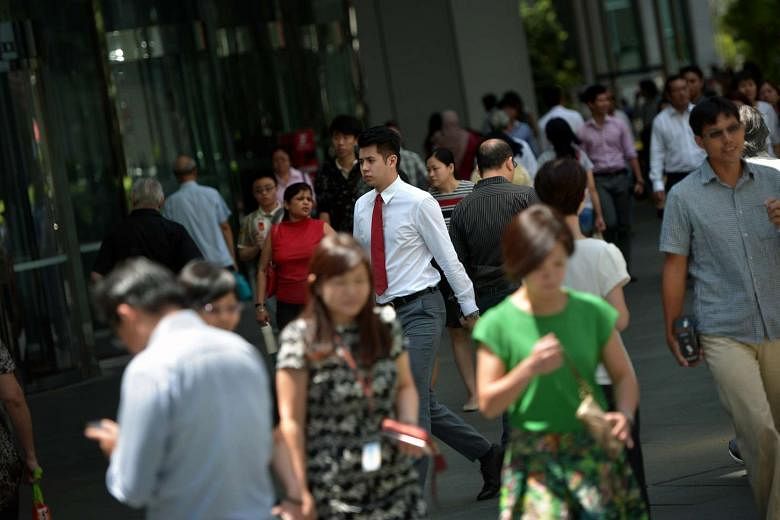SINGAPORE - Low wage workers, older workers and those with disabilities will get help to boost their employment prospects, Finance Minister Heng Swee Keat said on Thursday (March 24).
Meanwhile, schemes to help workers adapt to a restructuring economy continue through SkillsFuture, and other initiatives.
As economic cycles shorten, the pressure for workers to adapt will rise, Mr Heng said.
Here are six announcements made by the Minister:
1. For low-wage workers
The Workfare Income Supplement will be simplified and payouts will increase. Mr Heng expects the scheme to benefit some 460,000 Singaporeans.
The qualifying income ceiling will be raised from $1,900 a month, to $2,000. They will also get the payouts every month, instead of getting them quarterly.
Eligible workers will also get bigger payouts, which vary depending on age and income. They can get up to $3,600 a year, compared to $3,500 today.
For example, a worker earning $1,000 to $1,600 a month will receive increases in payouts of between $100 and $500.
2. For older workers
The Special Employment Credits (SEC) scheme, slated to expire this year, will be extended for three years till 2019 - but with some changes.
The scheme, introduced in 2011, allow employers to claim subsidies for the wages of older workers they hire.
The eligible age limit will be raised from 50 to 55, and those under 65 will see a lower offset percentage of 3 to 5 per cent.
Those 65 and above will continue to get an offset of 8 per cent, with an additional 3 per cent until the re-employment age is raised.
3. Workers with disabilities
The training component of the Workfare scheme - Workfare Training Support - will be extended to people with disabilities under 35 years old from Jan 1, 2017.
Public sector agencies will also work with SG Enable to provide more job opportunities for these job seekers.
Extending SEC also benefits workers with disabilities as it applies to firms hiring them, but with no age limits. Their employers will continue to receive the SEC of up to 16 per cent of the employee's wages.
4. Tech workers
TechSkills Accelerator, a new skills development and job placement hub for the ICT sector, aims to facilitate training opportunities for ICT skills that are in demand.
It will also develop industry-recognised skills standards and certification, and place greater value on certified skills proficiency.
5. Workers in transition
The "Adapt and Grow" initiative helps Singaporeans grow their skills and adapt to changing job demands.
Wage support schemes will be expanded to encourage firms to hire workers who have difficulty finding new jobs.
For retrenched professionals, the Professional Conversion Programmes will cover more sectors. New programmes will be launched in sectors like design and ICT, Mr Heng said.
The Ministry of Manpower will provide an additional $35 million a year for the re-training of PMETs (professionals, managers, executives and technicians).
6. SkillsFuture update
Since it was launched in January, Singaporeans have been making use of their SkillsFuture credits for courses, Mr Heng said.
The SkillsFuture Earn and Learn Programme, designed for fresh polytechnic and Institute of Technical Education graduates to work and gain qualifications at the same time, have been introduced in 12 sectors.
SkillsFuture Study awards have also been rolled out to 12 areas of specialisation.
The $5,000 award provides fee subsidies for early to mid-career Singaporeans to develop skills needed by future growth sectors.


